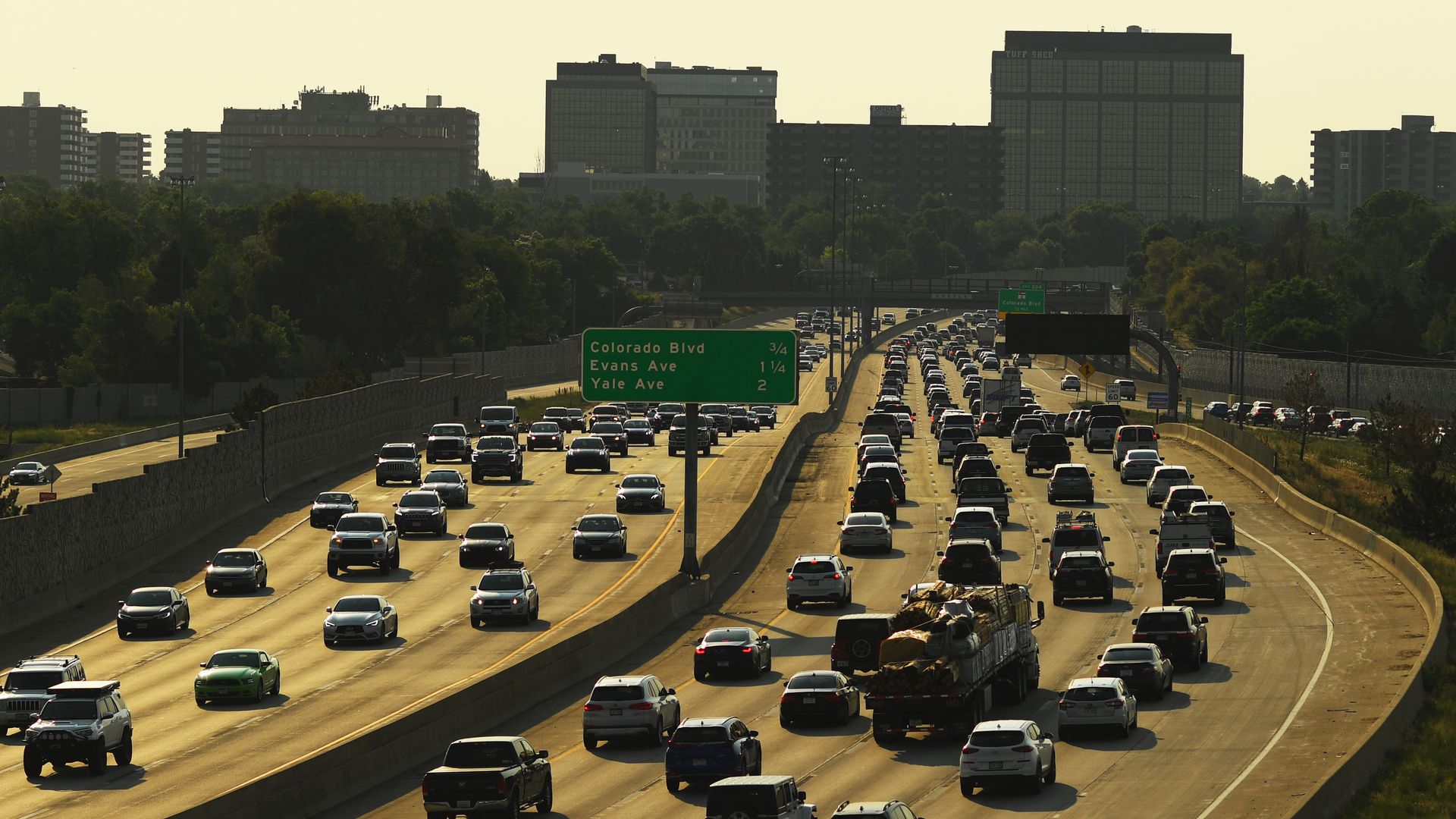Over the next two decades, Denver’s southern I-25 corridor is set to see major economic expansion as it evolves from an office hub to a vibrant mixed-use area, a recent report reveals.
Why it matters: The region, which includes the Denver Tech Center, could rival downtown when it comes to where young professionals want to live, work and play.
State of play: The corridor is already the metro’s second-most successful business district behind downtown Denver, with most of its new office development positioned near light rail stations, per the report.
- Over roughly the last 10 years, it’s added 18,500 jobs, employed nearly 153,000 workers, grown to 62 million square feet of commercial space and seen an increase of about 9,000 housing units.
- The median age of people working in the area is 36. The top four industries by workforce include finance and insurance, professional services, information and health care.
- Meanwhile, the populations of the Denver Tech Center and Greenwood Village area grew more than 10% between 2010 and 2020, as dozens of new restaurants and bars have infused activity into the area.
The big picture: The study comes from Denver South, a group of community and business leaders along the South I-25 highway and rail corridor.
- It analyzes changes in employment, transportation and commercial and residential development and estimates how those factors will impact growth over the next 20 years.
What they found: Based on current growth models, the corridor is expected to bring another 53,000 jobs by 2042 and add 9,000 more housing units over the next decade.
- In double that time, demand for commercial space is forecast to reach 12 million square feet.
- Traffic growth is expected to increase by 15% on I-25 and cross-streets in the Denver Tech Center area.
The intrigue: There has been a sharp drop in transit ridership in the corridor, which is “symptomatic of post-COVID travel pattern changes” and consistent with trends across Denver’s public transportation system, according to the report.
- Data suggests passengers’ concerns about personal security and safety issues, as well as reliability, are fueling the downward trend.
What’s next: Denver South plans to promote investments that continue the ramp-up of economic development, including efforts to revitalize underutilized buildings, recruit “destination businesses” that attract visitors from outside the corridor and expand transit options.

